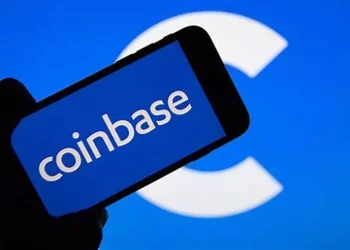Cryptocurrency exchanges have become an integral part of the digital asset ecosystem, acting as bridges between traditional financial systems and the burgeoning world of blockchain technology. Among the myriad of exchanges, OKCoin has established itself as a prominent player. Founded in 2013, OKCoin provides a platform for users to trade various cryptocurrencies and has garnered a reputation for its user-friendly interface, robust trading tools, and extensive range of supported digital assets. However, the security of cryptocurrency exchanges is a critical concern for traders and investors alike. This article delves into the security features and protocols of OKCoin, examining its strengths and potential vulnerabilities.
The Importance of Security in Cryptocurrency Exchanges
Before diving into the specifics of OKCoin, it’s essential to understand why security is paramount for cryptocurrency exchanges. Unlike traditional financial systems, where transactions can sometimes be reversed or insured, blockchain transactions are irreversible. This immutability is a double-edged sword: while it ensures transparency and prevents tampering, it also means that stolen funds are often irretrievable.
Several high-profile exchange hacks, such as the Mt. Gox and Bitfinex breaches, have resulted in significant financial losses for users and have highlighted the need for stringent security measures. These incidents underscore the importance of robust security protocols to protect user funds and maintain trust in the platform.
OKCoin’s Security Infrastructure
OKCoin employs a multi-faceted approach to security, incorporating both technological and procedural safeguards to protect its users’ assets. Below are some of the key security measures implemented by the exchange.
1. Cold and Hot Wallet Management
One of the fundamental security practices for cryptocurrency exchanges is the segregation of funds into cold and hot wallets. Cold wallets are offline storage devices, isolated from internet access, thus making them immune to online hacking attempts. Hot wallets, on the other hand, are connected to the internet and are used for day-to-day transactions.
Cold Wallets: OKCoin stores the majority of user funds in cold wallets, ensuring that these assets are protected from online threats. The exchange employs advanced encryption techniques and secure hardware modules to safeguard these cold storage wallets. Regular audits and checks are performed to ensure the integrity and security of the stored funds.
Hot Wallets: For operational efficiency and to facilitate quick transactions, a smaller portion of funds is kept in hot wallets. OKCoin’s hot wallets are secured using multi-signature technology, which requires multiple approvals before any transaction can be executed. This significantly reduces the risk of unauthorized access or fraud.
2. Two-Factor Authentication (2FA)
Two-factor authentication is a critical layer of security that adds an extra step to the login process. OKCoin mandates 2FA for all user accounts, ensuring that even if a user’s password is compromised, an additional verification step is required to gain access. This typically involves a time-sensitive code generated by an app like Google Authenticator or sent via SMS.
3. Advanced Encryption
OKCoin uses state-of-the-art encryption methods to protect user data and transactions. All sensitive information, including personal identification details and transaction data, is encrypted using industry-standard protocols. This ensures that even if data is intercepted, it remains unintelligible to unauthorized parties.
4. Regular Security Audits and Penetration Testing
To stay ahead of potential security threats, OKCoin conducts regular security audits and penetration testing. These assessments are carried out by both internal security teams and third-party cybersecurity firms. By identifying and addressing vulnerabilities proactively, OKCoin ensures that its security measures remain robust and up-to-date.
5. Anti-Phishing Measures
Phishing attacks, where malicious actors attempt to deceive users into providing sensitive information, are a common threat in the cryptocurrency space. OKCoin combats this through several measures:
Anti-Phishing Codes: Users can set up unique anti-phishing codes that appear in all official OKCoin emails, helping to verify the authenticity of communications from the exchange.
Education and Awareness: OKCoin regularly educates its users about the dangers of phishing and provides guidelines on how to recognize and avoid such attacks.
6. KYC and AML Compliance
Compliance with Know Your Customer (KYC) and Anti-Money Laundering (AML) regulations is crucial for the security and legitimacy of any cryptocurrency exchange. OKCoin has stringent KYC and AML policies in place, requiring users to verify their identities before they can trade on the platform. This helps to prevent fraudulent activities and ensures that the exchange adheres to international regulatory standards.
7. Insurance Fund
To provide an additional layer of security and reassurance to its users, OKCoin has established an insurance fund. This fund is designed to cover potential losses in the event of a security breach or other unforeseen incidents. While insurance cannot replace robust security practices, it offers a safety net that can help mitigate the impact of a breach.
8. Secure API Access
For traders who use automated trading strategies via APIs (Application Programming Interfaces), secure access is paramount. OKCoin provides secure API endpoints with customizable permissions and IP whitelisting. This ensures that API keys are not misused and that access is restricted to authorized IP addresses.
9. Dedicated Security Team
OKCoin maintains a dedicated security team that monitors the platform 24/7 for any suspicious activity or potential threats. This team is responsible for responding to security incidents, conducting forensic analysis, and implementing new security measures as needed. The presence of a specialized team underscores OKCoin’s commitment to maintaining a secure trading environment.
Incident Response and Historical Security Performance
A key aspect of evaluating an exchange’s security is its historical performance and response to security incidents. OKCoin has a relatively strong track record in this regard, with no major security breaches reported to date. The exchange’s proactive approach to security, combined with its robust incident response protocols, has helped it maintain a reputation for safety and reliability.
In the event of a security incident, OKCoin has a comprehensive response plan that includes:
- Immediate Containment: Rapidly identifying and isolating the affected systems to prevent further damage.
- Investigation and Analysis: Conducting a thorough investigation to determine the cause and scope of the breach.
- User Communication: Promptly informing affected users and providing guidance on the steps they should take to secure their accounts.
- Remediation and Improvement: Implementing fixes and improvements to prevent similar incidents in the future.
Comparing OKCoin with Other Exchanges
To provide a holistic view of OKCoin’s security, it’s useful to compare it with other leading exchanges. Below, we compare OKCoin’s security features with those of Binance, Coinbase, and Kraken.
OKCoin vs. Binance
Binance is one of the largest cryptocurrency exchanges in the world, known for its extensive range of supported assets and advanced trading features. In terms of security:
Both OKCoin and Binance use cold and hot wallet segregation, 2FA, and advanced encryption.
Binance offers additional security features like Universal 2nd Factor (U2F) authentication and withdrawal address whitelisting.
Binance has also established a Secure Asset Fund for Users (SAFU) to protect a portion of user funds in the event of a breach.
OKCoin vs. Coinbase
Coinbase is renowned for its user-friendly interface and strong regulatory compliance. Security-wise:
Coinbase, like OKCoin, employs cold storage for the majority of user funds and requires 2FA for account access.
Coinbase offers a unique feature called Vault, which provides time-delayed withdrawals and requires multiple approvals for added security.
Both exchanges adhere to strict KYC and AML policies and conduct regular security audits.
OKCoin vs. Kraken
Kraken is another well-respected exchange known for its security-first approach. Comparatively:
Kraken and OKCoin both use cold and hot wallet management, 2FA, and rigorous encryption standards.
Kraken offers additional security measures such as a Global Settings Lock, which restricts account changes for a set period.
Both exchanges have dedicated security teams and conduct regular audits and penetration testing.
Challenges and Areas for Improvement
While OKCoin’s security measures are comprehensive, there are always areas for improvement. Some potential challenges and recommendations include:
1. Enhanced User Education
Despite robust security measures, user error remains a significant risk. OKCoin could invest more in user education, providing detailed tutorials and resources on security best practices, such as recognizing phishing attempts and using hardware wallets for personal storage.
2. Continuous Innovation in Security Technologies
The cybersecurity landscape is constantly evolving, and exchanges must stay ahead of new threats. OKCoin should continue to invest in cutting-edge security technologies, such as AI-driven threat detection and advanced biometric authentication methods.
3. Transparency and Communication
Increasing transparency around security practices and incidents can help build user trust. OKCoin could consider publishing regular security reports and updates, detailing the measures they are taking to protect user funds and any improvements made in response to emerging threats.
4. Expanding Insurance Coverage
While the existing insurance fund is a positive step, expanding the coverage to include a wider range of incidents could provide additional peace of mind for users. This could involve partnering with third-party insurers to offer optional coverage for large accounts or high-frequency traders.
See also: What States Is Okcoin Prohibited
Conclusion
Security is a critical component of any cryptocurrency exchange, and OKCoin has demonstrated a strong commitment to protecting its users through a multi-layered approach. With robust wallet management, advanced encryption, regular security audits, and a dedicated security team, OKCoin has implemented several measures to safeguard user funds and data.
However, the ever-evolving nature of cybersecurity threats means that continuous improvement and innovation are essential. By enhancing user education, investing in new technologies, and increasing transparency, OKCoin can further bolster its security posture and maintain its reputation as a reliable and secure cryptocurrency exchange.
In summary, while no system is entirely foolproof, OKCoin’s comprehensive security measures position it well to protect its users in the dynamic and often unpredictable world of cryptocurrency trading.
Related topics:
How Secure is Coinbase Wallet?
What is the Difference Between Coinbase and Coinbase Wallet?
















